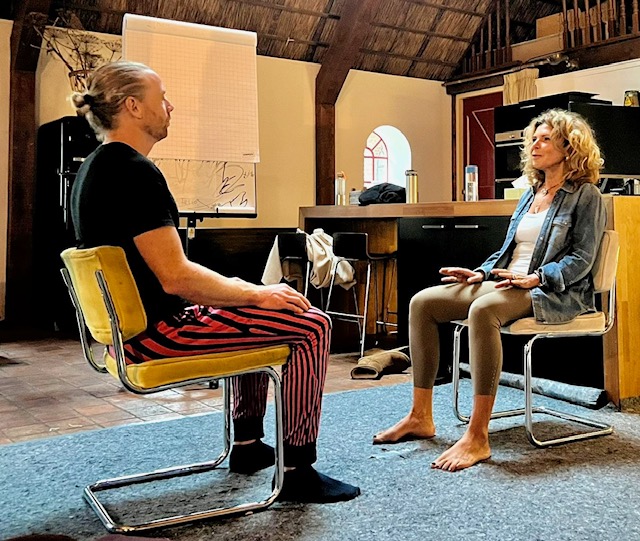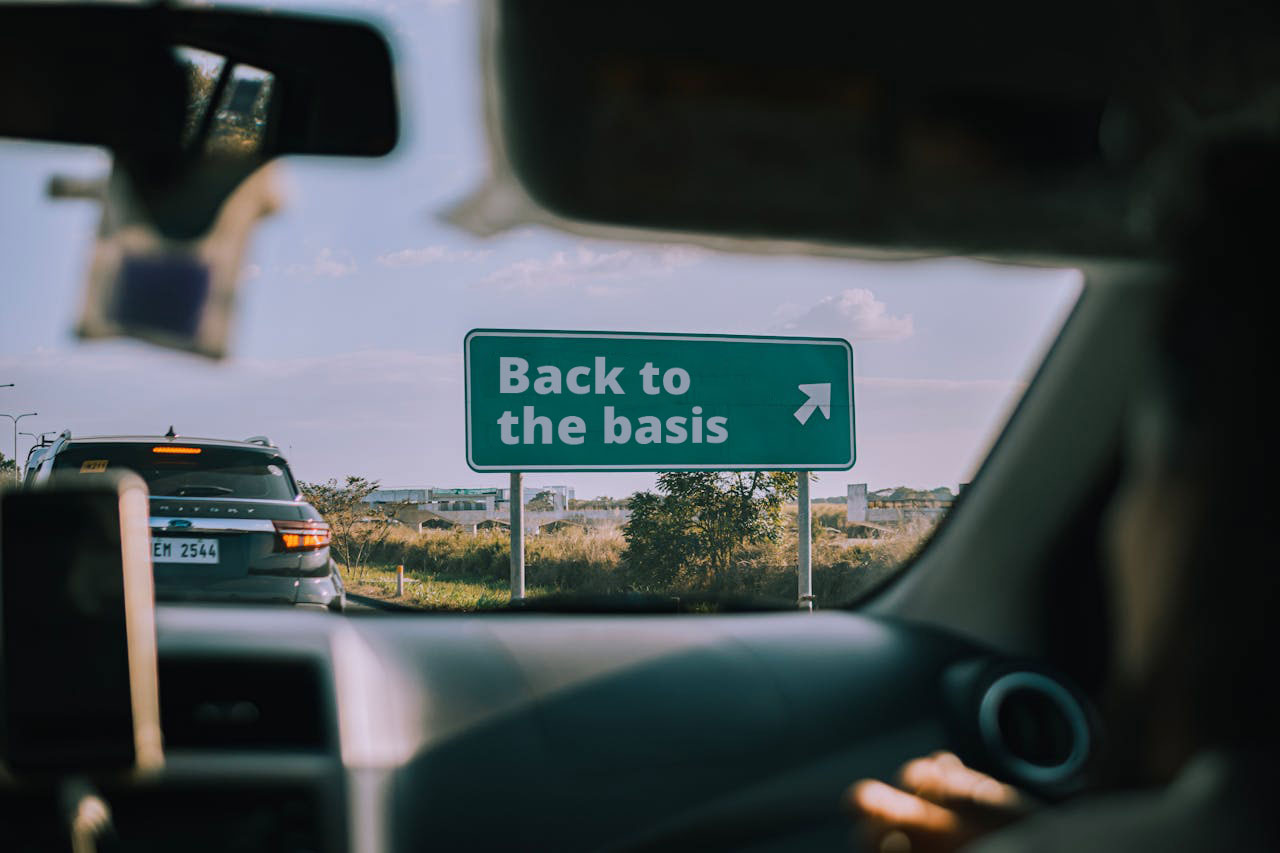omnisearch_title
Back to the basis
When life and relating to each other starts to be challenging, when the flow we usually enjoy feels blocked or heavy, I find it essential to pause. In my own relationship, these moments become an invitation to stop running on autopilot and to look more deeply at what is really happening inside myself and between us. It’s in these times of difficulty that I return to the foundation, checking in with my heart, my body, and the connection we are creating together.
Over the years, I’ve come to see that these moments of tension are not signs of failure, but natural signals that something in the relationship is ready to evolve. Relationships, like all living things, move through cycles. Sometimes they expand and flow with ease, sometimes they contract and call us into discomfort. Both movements have their place.
Today, I want to explore the three stages of relationship, as mapped out by David Deida, one of the great voices of modern intimacy and spiritual polarity. These stages aren’t just philosophical they are deeply embodied. Each stage carries its own energetic signature, emotional patterns, and attachment dynamics.
And most importantly: each stage invites us to reflect. Where am I in my current connection? Where am I in myself?
Let’s begin.
Stage One: Survival-Based Love "What can I get from you?"
This is the first phase. Most of us have experienced it at some point maybe as teenagers, maybe in our twenties, maybe still.
The core here is need and dependency. At this stage, love is driven by need, desire, and gratification. It’s based on emotional dependency, often shaped by early attachment wounds. We’re not choosing love from a place of wholeness we’re clinging to it from a place of fear, or longing, or lack.
The feminine is often yearning for safety, connection, validation. The masculine is often seeking freedom, space, or control. But both are acting from an inner void, from unhealed attachment trauma.
Common dynamics include emotional reactivity, drama, power games. Sex is focused on personal pleasure or reassurance, not deep union. Jealousy, possessiveness, or avoidant behavior appear. Communication becomes manipulation: “If you loved me, you would…” This stage is passionate yes. But it’s also unstable. It's a rollercoaster. There are highs, but they come with crashing lows.
The attachment link here is closely related to anxious and avoidant attachment styles. If you feel anxious, you may cling, chase, or fear abandonment. If you lean avoidant, you may withdraw, shut down, or resist intimacy. The relationship becomes a place of unconscious survival, rather than conscious connection.
The challenge is that there is little trust, little presence, and very little depth. It’s about getting, not giving. It’s about surviving, not thriving. Yet, this stage has its place. It brings us face to face with our inner child, our unhealed wounds, our unmet needs. And sometimes, we need to pass through this fire before we can soften into something deeper.
Stage Two: Respect-Based Love “We are equals.”
This is the relationship many of us aspire to in the modern world. It’s healthy. It’s mature. It’s fair. But it may also feel... a little flat.
The core here is equality and balance. Both partners have worked on themselves. They value personal growth, independence, and boundaries. They communicate, they share the load, they respect each other.
There’s no more drama. No more power games. But also... not always much passion.
Common dynamics include an emphasis on fairness, therapy, conflict resolution. Everything is 50/50. Emotional safety is prioritized. Masculine and feminine energies become neutralized resulting in less polarity. Sex may be consistent, but it often lacks spark.
This stage is a great accomplishment. It reflects secure attachment, emotional intelligence, and personal responsibility. But it can also become a bit too polite. Like roommates. Friends. Allies, not lovers.
The attachment link here is associated with earned secure attachment. Both partners feel safe and seen. Boundaries are respected. Co-regulation is possible. Yet the polarity that creates sexual magnetism might be reduced.
The challenge is that safety can become stagnation. Respect can become routine. The mystery of love fades when everything is always “fair.” Still, this stage teaches us how to co-create. It heals the nervous system. It gives us the foundation to move into deeper territory... if we dare.
Stage Three: Devotional Love “How can I give you my deepest love?”
Now we enter sacred ground.
This is the realm of conscious, devotional relationship. Love as a spiritual practice. Union as a path of awakening. Here, both partners are anchored in their own being, and they choose to serve love not the ego, not the wound, but love itself.
The core here is selfless love and awakening. This stage is about giving, not getting. It’s not about fairness, it’s about surrender. It’s about allowing your partner to touch your soul even when it’s uncomfortable. Especially when it’s uncomfortable.
The masculine embodies presence and consciousness. The feminine embodies radiance and wild love. Together, they create a polarity that is alive, sacred, electric.
Common dynamics include deep intimacy and emotional transparency. Sex becomes an expression of divine union. Challenges are met with love, not reactivity. Each partner stays connected to their purpose and offers their highest to the other.
This stage is rare. It requires everything. It’s not for the faint of heart. You must know yourself, love yourself, and be willing to die to your ego again and again.
The attachment link here moves beyond attachment styles. We may still carry remnants of anxious or avoidant patterns but we are no longer run by them. We witness our triggers, but we don’t act from them. We hold space for our partner, without collapsing. We meet each other in devotion not demand.
The challenge is that this stage demands emotional maturity, spiritual practice, and radical vulnerability. It’s not something we can sustain all the time. And that’s okay. Like the tides, we may flow in and out of this stage. But when we taste it, even once it changes everything.
Challenge of the Week:
Take a moment to slow down and tune in and to reflect on your current or recent relationship. Or if you’re single, think back to your last deep connection.
Here’s a simple way to assess which stage you're currently living in:
Stage One: Selfish / Survival-Based
Do you feel anxious or clingy when your partner pulls away?
Are you or your partner playing games for control or attention?
Are there frequent emotional ups and downs?
Are arguments reactive and blame-based?
If yes to several of these you may be in Stage One.Stage Two: Equal / Respect-Based
Do you value fairness, independence, and good communication?
Are responsibilities shared equally?
Is the relationship emotionally safe but sometimes a bit... boring?
Do you feel like best friends or co-parents, more than lovers?
If this resonates you’re likely in Stage Two.Stage Three: Devotional / Spiritual-Based
Do you or your partner give love even in difficult moments?
Are you drawn to deep masculine/feminine polarity?
Is your relationship a space for growth, truth, and awakening?
Do you both stay anchored in your purpose, offering love as a gift?
I’d love to hear how these lands for you. You can share your reflections with me and send a message if something moved inside you.
With love and presence,
Eva
Latest articles

Why Your Body Goes Into Overload: Understanding Your Nervous System and Breaking Stress Cycles

Persistency Over Striving: Five Simple Somatic Practices to Reconnect with Your Body, One Millimeter at a Time

